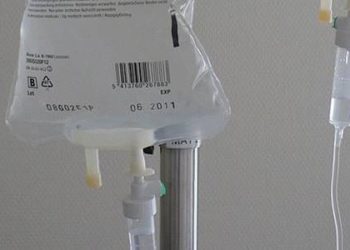Cerebrovascular procedure complications linked with race/ethnic and socioeconomic factors
Image: PD
1. Minorities and medicaid patients had significantly increased frequency of hospital acquired complications (HACs).
2. HACs lead to significantly increased length of stays and inpatient costs.
Evidence Rating Level: 2 (Good)
Study Rundown: Centers for Medicare and Medicaid Services (CMS) have previously identified 11 hospital acquired conditions (HACs) that lead to preventable and high cost complication outcomes. These HACs are now linked to patient care performance benchmarks and government reimbursement. Socioeconomic status (SES) and race are well-known to be associated with disparities in health outcomes. By utilizing the large NIS database of in-patient outcomes data, this study demonstrated a clear link between racial/ethnic and SES, and higher rates of HACs following cerebrovascular procedures, even after adjusting for confounders in multivariate analysis. These findings identify a population within which targeted improvements in preventable complications need to be made to reduce significant patient morbidity and mortality, as well as hospital costs. Limitations of the study are mainly due to its retrospective and database driven methodology. Databases are subject to recording error and bias, and only accounts for in-patient outcomes and do not account for out-patient complications.
Click to read the study in NEUROSURGERY
Relevant Reading: Racial and Ethnic Disparities in the Treatment of Cerebrovascular Diseases: Importance to the Practicing Neurosurgeon
In-Depth [retrospective cohort]: This study utilized the National In-patient Sample (NIS) database to look for ICD-9 codes corresponding to cerebrovascular disease conditions and identified nearly 1.3 million discharges related to cerebrovascular procedures (CVPs) from 2002 to 2010. 0.5% of all patients were noted to have had at least one HAC, but minority and medicaid patients experienced HACs at nearly double the rate of white patients. Patients with lower median incomes based off of zip code also had higher rates of HACs. Multivariate analysis adjusting for patient and hospital level-confounders revealed that black (OR = 1.44, p <0 0.1) and hispanic (OR = 1.58, p <0.01) patients had a 40-50% likelihood of having an HAC compared to white patients. Medicaid patients exhibited a similar 50% increased likelihood. Mean length of stay for patients with HACs was significantly increased (16.7 vs 4.2 days), and total hospital costs was nearly three times(~$177k) that of patients without HACs.
©2012-2014 2minutemedicine.com. All rights reserved. No works may be reproduced without expressed written consent from 2minutemedicine.com. Disclaimer: We present factual information directly from peer reviewed medical journals. No post should be construed as medical advice and is not intended as such by the authors, editors, staff or by 2minutemedicine.com. PLEASE SEE A HEALTHCARE PROVIDER IN YOUR AREA IF YOU SEEK MEDICAL ADVICE OF ANY SORT.






